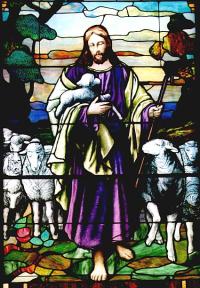
The disciples were excited after their experience of preaching,healing and casting out demons. They naturally wanted to tell Jesus all about their experience. He knew that they needed a quiet space for reflection or they would have become burnt out, as those in active ministry can find out to their cost.
The image of the shepherd is a common one throughout the Old and New Testaments. In the days of the patriarchs the role of shepherd was an honourable one; however, the Egyptians, who were an agrarian people, depised shepherds, as they saw sheep as destructive. The Israelites learnt from them and shepherds were viewed in the same light as tax collectors. They were probably rough and uneducated. Jesus, however, identified with them. They had been the ones selected especially to visit him at His birth and like them he would give up his life for His flock.
Jeremiah and Jesus both had the same concept of a leader as shepherd. There are many forms of leadership. It is often seen as a way of dominating and exploiting people. This was true in both the days of Jeremiah and Jesus. In the time of Our Lord, Palestine was ruled by a cruel governor, Pontius Pilate, the corrupt King Herod and a venal priesthood. In contrast Jesus, the Good Shepherd, leads his sheep to rich pastures; he cares for them, knows them by name and protects them from danger. He dies for them.